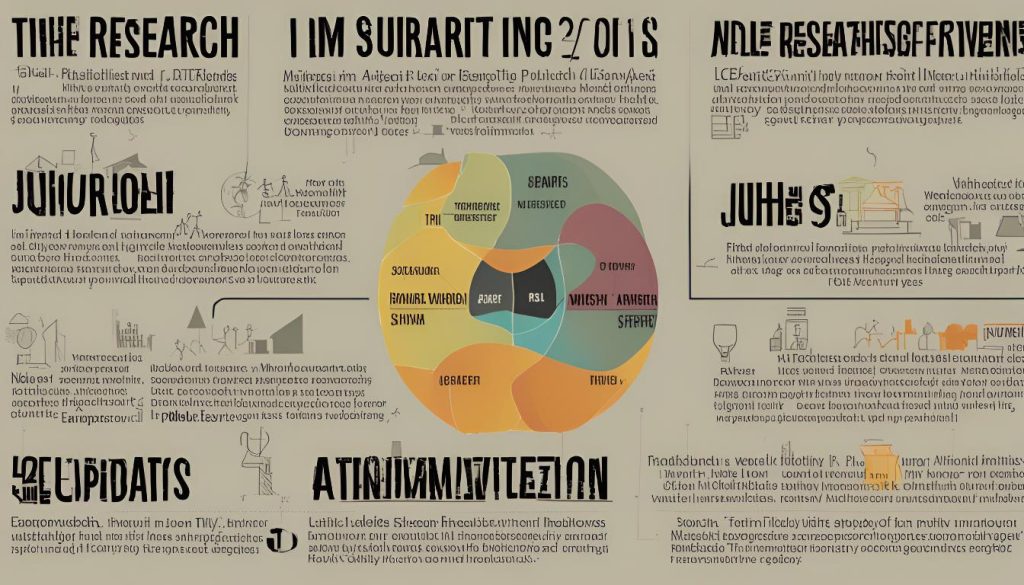Introduction
Universities have long been recognized as bastions of understanding, creativity, and innovation. Central to their undertaking is the pursuit of studies, a multifaceted endeavor that spans disciplines, methodologies, and functions. Research in universities plays a pivotal role in advancing expertise, riding societal progress, informing coverage, and fostering monetary development. This article delves into the diverse dimensions of research in universities, highlighting its significance, demanding situations, and transformative effects.
Advancing Knowledge and Innovation
In the middle of university research is the development of understanding. Researchers in universities explore uncharted territories, are trying to find solutions to fundamental questions, and push the limits of human information. Whether it’s within the fields of science, technology, the humanities, or the social sciences, college research contributes to the continuous evolution of disciplines. Groundbreaking discoveries in regions such as genetics, synthetic intelligence, and quantum physics have frequently originated in university laboratories, setting the level for technological advancements and sensible programs that form the future.
Innovation is another critical outcome of college research. Universities function as incubators for ideas that have the capability to revolutionize industries and improve the quality of their existence. For instance, the development of the internet, which has transformed worldwide conversation and trade, may be traced back to university studies. Similarly, advancements in medical studies performed in universities have caused new treatments and treatment plans, improving healthcare outcomes worldwide. The collaborative environment of universities, wherein students from numerous fields can have interaction and alternate thoughts, fosters a lifestyle of innovation that drives development.
Informing Policy and Practice
Research carried out in universities plays a critical role in informing policy choices and shaping satisfactory practices across diverse sectors. Policymakers rely upon evidence-based studies to layout powerful interventions, address societal challenges, and allocate resources efficaciously. For instance, research in public fitness informs strategies to combat diseases, enhance healthcare structures, and promote well-being. Economic research courses include monetary guidelines, exertions, market regulations, and strategies for sustainable improvement.
In the realm of training, college studies contribute to the development of pedagogical techniques, curriculum layout, and evaluation gear. By analyzing learning procedures and academic effects, researchers offer precious insights that enhance teaching practices and improve student achievement. Similarly, studies in environmental technological know-how inform policies aimed at mitigating weather exchange, maintaining biodiversity, and promoting sustainable resource management. The rigorous methodologies and analytical rigor of university research ensure that policy pointers are grounded in reliable proof.
Fostering Economic Development
Universities are key drivers of economic improvement through their study activities. By generating new knowledge and technologies, universities make a contribution to the growth of industries and the creation of jobs. Research-pushed innovations cause the development of recent products, tactics, and services that enhance productivity and competitiveness. University-enterprise partnerships facilitate the translation of study findings into business applications, fostering entrepreneurship and economic diversification.
The established order of study parks and innovation hubs on college campuses similarly amplifies their financial effect. These ecosystems provide a conducive environment for startups, spin-off agencies, and collaborative projects between academia and industry. Universities additionally play an important role in personnel development by equipping college students with the talents and know-how needed for emerging industries. Graduates who have participated in study projects are regularly better prepared for the demands of the process market and are more likely to make contributions to innovation-pushed economic growth.
Addressing Global Challenges
In an increasingly interconnected world, universities are at the forefront of addressing globally demanding situations that go beyond countrywide obstacles. Research in universities tackles pressing troubles including climate change, poverty, inequality, and public fitness crises. Multidisciplinary research groups collaborate to develop comprehensive solutions that do not forget the social, economic, and environmental dimensions of these challenges.
For instance, weather alternate studies in universities explore the affects of global warming, develop mitigation techniques, and promote sustainable practices. Social science studies examine the foundational reasons for poverty and inequality, informing regulations and interventions with the intention of creating more equitable societies. In the face of worldwide pandemics, college studies contribute to the understanding of disease transmission, the improvement of vaccines, and the development of healthcare infrastructure.
International collaborations and partnerships enhance the capability of universities to deal with demanding international situations. By sharing information, sources, and knowledge, universities can leverage their collective strengths to address complicated troubles. These collaborations also promote cross-cultural understanding and foster a worldwide attitude among researchers and college students.
Challenges and Opportunities
While college research holds colossal potential, it is not without challenges. Funding constraints are an extensive obstacle, as research activities require massive monetary assets. Securing investment from authorities, corporations, personal foundations, and industry partners is frequently aggressive and can restrict the scope and scale of research initiatives. Additionally, the increasing emphasis on metrics and impact evaluation can create strain on researchers to prioritize quick-time period outcomes over lengthy-time period exploratory studies.
Another assignment is the need for extra inclusivity and diversity in studies. Historically, positive agencies were underrepresented in educational studies, due to biases in research questions, methodologies, and results. Efforts to promote range, fairness, and inclusion in research are vital to making sure that the blessings of research are handy to all segments of society.
Despite these challenges, there are various opportunities for enhancing the role of studies in universities. Interdisciplinary studies tasks can address complicated troubles that require more than one views and knowledge. Advances in generation, consisting of huge records analytics and artificial intelligence, provide new tools for conducting studies and producing insights. Open-get right of entry to publishing and records-sharing structures can democratize get admission to to investigate findings and sell collaboration across institutions and borders.
Conclusion
The position of studies in universities is multifaceted and far-accomplishing. It drives the development of knowledge, fosters innovation, informs coverage and exercise, and contributes to economic development. University studies addresses international challenges and promote a deeper understanding of the arena we live in. While challenges exist, the opportunities for reinforcing research in universities are ample. By fostering a lifestyle of interest, collaboration, and inclusivity, universities can remain engines of discovery and progress, shaping a higher destiny for all.


